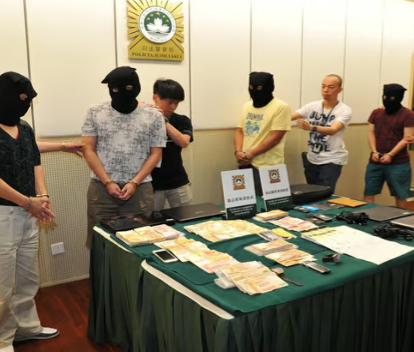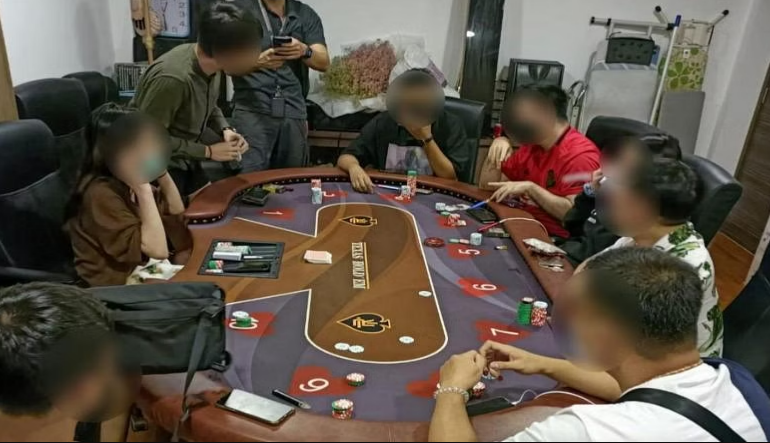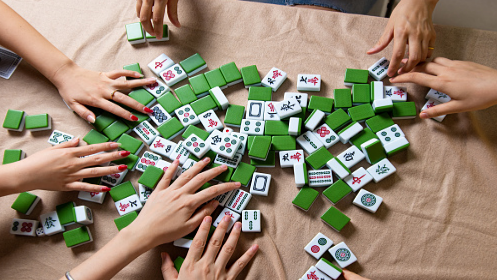Gambling is restricted in Singapore due to the potential socio-economic impacts it can have on individuals and society at large. The government has implemented strict laws, such as the Common Gaming Houses Act and the Remote Gambling Act, to regulate and prevent uncontrolled gambling activities.
The Socio-economic Impacts of Gambling
Gambling, whether legal or not, has undeniable socio-economic consequences. From individuals to families, and even at the national level, the repercussions of gambling are far-reaching. This section explores these impacts in depth.

The Economic Downfall of Gambling Addiction
Gambling addiction doesn’t merely affect one’s emotional or psychological state. It often leads to severe financial problems. Addicted gamblers may deplete their savings, accrue massive debts, and even resort to stealing to fund their habits. Many might think that a big win could solve their financial troubles, but the reality is that most end up losing more, deepening their financial crisis.
- Loss of Personal Savings: It’s common for addicts to dip into their life savings in the hopes of “hitting it big”. More often than not, these individuals end up with nothing, having gambled away their financial security.
- Debt Accumulation: Many addicted gamblers turn to loans to fund their habits. This might lead to a vicious cycle where they borrow more to repay existing debts, leading to a mountain of financial obligations they can’t manage.
- Impact on Employment: Constant gambling can lead to neglect of work responsibilities. This negligence might result in job loss, further exacerbating the individual’s financial situation. Here is a comprehensive look at problem gambling on Wikipedia.
Social Ramifications and Family Disruptions
Gambling addiction doesn’t only impact the individual. The ripple effects are felt deeply within families and the larger community.
- Broken Families: Money issues, especially those stemming from gambling, are among the top reasons for marital conflicts and divorce. Children in these households might also suffer from neglect or abuse as a direct consequence of a parent’s gambling problem.
- Mental Health Issues: The stress from gambling-related problems can lead to anxiety, depression, and even suicidal thoughts. Families often bear the brunt of these emotional upheavals, causing long-term psychological scars.
- Isolation: As the addiction deepens, gamblers may isolate themselves from friends and family, either out of shame or the obsessive need to gamble. This isolation can lead to a breakdown in essential social connections. Wikipedia’s article sheds more light on the social implications of problem gambling.
The Link between Gambling and Crime
A grim but undeniable link exists between gambling and crime. As individuals become desperate to fund their habits or repay debts, they might resort to illegal activities.
- Theft and Fraud: Some gamblers, in desperation, turn to stealing—either from family members, employers, or strangers. There have been instances of embezzlement or fraud, especially if the person has access to company funds.
- Loan Sharks and Violent Crime: Many gamblers fall prey to loan sharks when traditional lending avenues are closed. Failing to repay these loans can result in threats or actual acts of violence.
- Illegal Gambling Rings: In places where gambling is strictly regulated or banned, illegal gambling dens might pop up. These establishments are often associated with organized crime. This Wikipedia link provides a deeper dive into the nexus between gambling and crime.

Singapore’s Legal Framework on Gambling
In Singapore, the approach to gambling is pragmatic yet cautious. The city-state recognizes the potential economic benefits that come from gambling establishments, like casinos. However, it’s also acutely aware of the social problems gambling can cause. To navigate this fine line, Singapore has established a robust legal framework to regulate and control gambling activities.
The Common Gaming Houses Act
The Common Gaming Houses Act is one of Singapore’s oldest pieces of legislation targeting gambling. This law prohibits the running and patronizing of unlicensed gambling houses.
- Definition: This Act defines a “common gaming house” as any place kept or used for gaming to which the public or any class of the public has access.
- Penalties: Those found guilty of running an unlicensed gambling operation can face hefty fines and imprisonment. Similarly, those found gambling in such establishments also face legal consequences.
- Exemptions: The Act also provides provisions for certain types of gaming to receive exemptions, typically under strict conditions. An insight into the specifics can be found on Wikipedia.
The Remote Gambling Act
With the rise of the internet, online gambling became a new frontier. Singapore’s response was the Remote Gambling Act, which primarily seeks to curb online gambling activities.
- Prohibitions: The Act mainly prohibits all forms of remote gambling activities, including betting, gaming, and participating in lotteries that are not explicitly authorized.
- Blocking Measures: To enforce its rules, the Act provides for measures like blocking access to unauthorised remote gambling websites and payment transactions to and from such sites.
- Licenses for Operators: The law isn’t a blanket ban on all online gambling. Operators can obtain licenses, but the requirements are stringent, ensuring that only the most compliant and responsible operators get approval.

The Casino Control Act
The Casino Control Act came into force to regulate the operations and gaming in casinos, ensuring that the management and operation of casinos remain free from criminal influence.
- Licenses for Casinos: The Act provides for the establishment and operation of casinos, ensuring that they adhere to a strict set of standards.
- Social Safeguards: Measures like levying entry fees on Singaporeans and permanent residents and setting age restrictions are in place to minimize potential social issues stemming from casino gambling.
- Oversight and Control: A regulatory body, the Casino Regulatory Authority (CRA), oversees the casino operators, ensuring they adhere to the Act’s provisions. This also involves periodic reviews and audits.
Exception to the Rule: Integrated Resorts
While Singapore maintains a stringent stand against unlawful gambling, there are clear exceptions, particularly when it comes to Integrated Resorts (IRs). These establishments combine luxury hotels, entertainment, shopping, and, yes, casinos. But it’s their broader economic and social contribution, coupled with strict regulations, that makes them a unique case in Singapore’s gambling landscape.
Introduction to Marina Bay Sands and Resorts World Sentosa
Both Marina Bay Sands and Resorts World Sentosa aren’t just casinos; they are comprehensive entertainment destinations.
- Marina Bay Sands: An architectural marvel located in the heart of Singapore, Marina Bay Sands is not only known for its iconic infinity pool but also its vast shopping mall, theatres, and museums. The casino, while significant, is just a portion of what this resort offers. Check out Wikipedia for a deep dive into its attractions.
- Resorts World Sentosa: Situated on Singapore’s resort island of Sentosa, this integrated resort offers Universal Studios Singapore, Adventure Cove Waterpark, and the S.E.A. Aquarium, among many other attractions. The casino here attracts international tourists while offering a world-class gaming experience. Wikipedia provides an extensive overview of its features.
Economic and Touristic Contributions
These integrated resorts contribute significantly to Singapore’s economy and tourism sector.
- Job Creation: Thousands of jobs, both direct and indirect, have been generated because of these resorts. They offer employment opportunities not just in gaming, but in hospitality, retail, and entertainment sectors.
- Boost to Tourism: The unique offerings of these resorts draw millions of international tourists to Singapore every year, significantly boosting tourism revenue.
- Infrastructure Development: The presence of such high-profile resorts has accelerated infrastructure development in their respective regions, leading to better connectivity and ancillary business opportunities.
Safety Measures and Responsible Gambling Efforts
Despite the allure and grandeur of these resorts, there’s a deep commitment to promoting responsible gambling.
- Entry Levy for Locals: Singapore citizens and permanent residents have to pay a significant entry fee to access the casinos, which serves as a deterrent and ensures that locals don’t make frequent casual visits.
- Age Restrictions: Only individuals aged 21 and above can enter the casino areas, ensuring that the youth are shielded from potential gambling influences.
- Self-Exclusion and Family Exclusion: Individuals can apply to exclude themselves from entering the casinos if they feel they are at risk. Additionally, family members can also apply to have a relative excluded if they believe their loved one is facing gambling problems.

